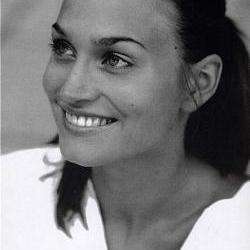Ferruccio Furlanetto, dressed in black, stands in the curve of the piano behind him, silhouetted again a blood red, velvet curtain. He raises his head at the opening piano tones and begins to sing. The audience is immediately enveloped in the kind of warm bass voice that seems to wrap itself around you like the perfect eiderdown; not too heavy and not too light, well positioned and unstrained. Furlanetto is a true Italianate bass in the best sense of the word and belongs to an exceptional class of singers, the kind of which is becoming increasingly difficult to find. Having celebrated his 64th birthday earlier this month, he neither looks nor sounds past his prime, and the audience at the Staatsoper in Vienna this past Tuesday evening to see his solo concert knew from the start that they were in for a treat.
The first half of the evening featured Rachmaninov songs. Furlanetto opened with “Fate”, from the Op. 21 set of twleve songs written to finance Rachmaninov’s wedding to his cousin Natalja Satina. “Fate” artfully combines a paraphrase of the famous opening motive of Beethoven’s Fifth Symphony with text featuring the character of Fate dressed as an old man, interminably wandering the earth and calling on every man, rich or poor. Furlanetto colored each “tap, tap, tap” of Fate’s staff uniquely, and the falsetto he used on “darling mine” to depict the soon-to-be-disappointed lover near the end of the ballade was brilliant and haunting. From “Fate”, Furlanetto moved on to the often sung “A Dream” from the Op. 8 set, then returned to Op. 21 with “The Lilacs”, a gem of a piece, refreshing in its simplicity. “In the Silent Night” followed, the song of a lover remembering his dearly departed which ends with the phrase “I loudly cry to thee, that night may know they name”, ravishingly floated on a pianissimo high D. Five more songs followed, the final being the ebullient and pianistically maddening “Spring Waters”.
The second half featured the songs of another Russian great, Modest Mussorgsky, whose songs are typified by stark portraits of day-to-day life, struggle and death, and whose musical language (especially in terms of the piano accompaniment and the relationship between voice and piano) is much more direct and varied than the flowery, virtuosic filler that typifies Rachmaninov’s vocal oeuvre. The first song, “Leaves Rustled Sadly” featured beautiful, melancholy tonal shifts and was followed by “What are Words of Love to You?” and “Old Man’s Song”, poignant in its unison piano/voice opening and hymn-like elements throughout. A Pushkin setting, “Night”, came next, featuring constant tremolo and trilling in the piano to represent the fluttering magical vision of love’s murmurs, whispers and magic. Furlanetto then really began to open up in “Wild Winds Blow”, and the dramatic, octave passages in the piano depicting the storm were fabulous, though my interest flagged somewhat in the foggy middle section.
Undeniably, however, the four-song cycle Songs and Dances of Death stole the show. The first of the set, “Lullaby”, opens on a night-time scene in a nursery where a distracted mother is joined by Death, who rocks the child into peaceful, endless sleep. Furlanetto’s voice lent itself perfectly to both Death, the peace-giver, and to the hysterical mother, and when their dialogue ended you could hear a pin drop. In “Serenade”, Death the suitor beguiles a dying woman from outside her window in 6/8 time, hauntingly describing her beauty until she succumbs to his charms. In the third song of the set, “Trepak”, Death accompanies a drunken man who loses his way in a snowstorm, convincing him in folk-song motives to lie down and rest and dream until morning. The postlude reveals that the drunk will rest eternally as he slips from a vision filled with blue skies, summer fields and birdsong into silence followed by pianissimo, heaven-bound open chords. The final song of the set, “The Field Marshal” opens amidst a dreadful battle filled with piano runs, clanging accents and repeated tones. In the following night, Death walks among the soldiers and the fallen in the moonlight, reminding them that though life separates them, he reunites all in the end.
It was a rare joy to hear a program that had been given the chance to ripen and mature over time, and both Furlanetto and Igor Tchetuev are musically and technically world-class. I wished from time to time, especially in the Rachmaninov, for more dynamic contrast in the piano and adherence to the score markings from Tchetuev and wished that Furlanetto would look more at his audience and less at his score, but those details aside, it was the most beautiful evening filled with death, longing and melancholy that a girl could ask for.


